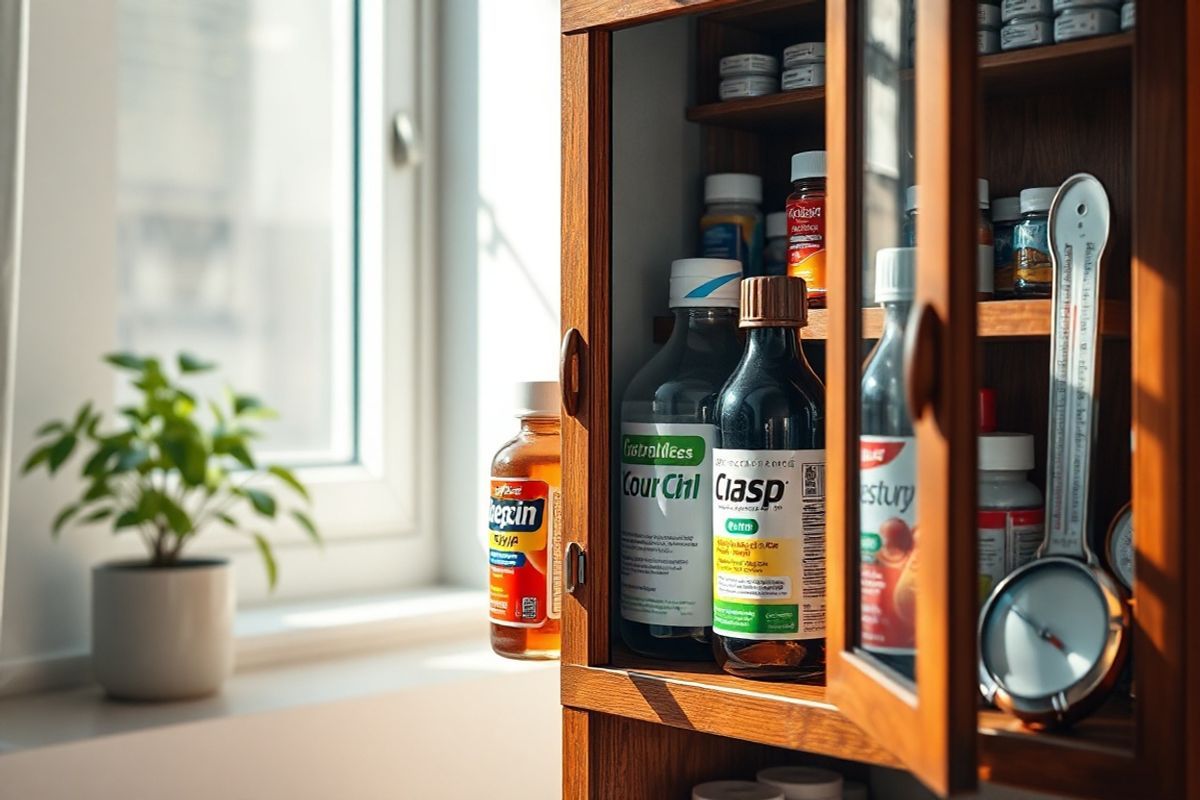Table of Contents
Understanding Dextromethorphan: What You Need to Know for Cough Relief

Dextromethorphan (DXM) is a widely used cough suppressant found in many over-the-counter medications. It works by affecting the signals in the brain that trigger the cough reflex, providing relief for various types of coughs, especially those arising from common colds or flu. DXM is particularly effective for dry coughs, which do not produce mucus, making it a popular choice for individuals seeking quick relief without the discomfort associated with a productive cough (Cleveland Clinic, 2023).
DXM is available in several formulations, including syrups, tablets, and capsules. It is crucial to follow the dosing instructions provided on the product label or by a healthcare professional to avoid potential side effects associated with misuse or overdose.
Exploring the Different Forms and Strengths of Dextromethorphan
Dextromethorphan is available in various forms and strengths, allowing consumers to choose the option that best suits their needs. Common brands include Robitussin, Delsym, and Vicks, which offer formulations for both adults and children. The concentration of DXM can vary significantly across products, typically ranging from 10 mg to 30 mg per dose.
TablCommon Dextromethorphan Products and Their Strengths
| Product Name | Formulation | DXM Strength (mg) |
|---|---|---|
| Robitussin DM | Liquid syrup | 10-20 |
| Delsym | Extended-release liquid | 30 |
| Vicks DayQuil Cough | Liquid syrup | 10-15 |
| Tylenol Children’s Cough | Liquid suspension | 5-10 |
| PediaCare Children’s Cough | Liquid syrup | 5-10 |
When selecting a DXM product, consider the specific symptoms you wish to address. For example, if you have a persistent dry cough, a product with a higher DXM concentration or an extended-release formulation may be more beneficial.
How to Properly Use Dextromethorphan for Maximum Cough Relief

To maximize the effectiveness of dextromethorphan, it is essential to use it correctly. Follow these guidelines:
-
dosage: Always adhere to the recommended dosage based on age and weight. Adults typically take 10-20 mg every 4-6 hours, not exceeding 120 mg in 24 hours (Cleveland Clinic, 2023). For children, dosage varies by age and weight, so consult the product label or a healthcare provider.
-
Administration: Take DXM with a full glass of water to help it dissolve and absorb into your system. If using a liquid formulation, use a proper measuring device to ensure accuracy.
-
Timing: For nighttime relief, consider taking DXM about 30 minutes before bedtime to help suppress coughing during sleep.
-
Avoid Alcohol: Alcohol can enhance the sedative effects of DXM, leading to increased risks of side effects or overdose. Avoid combining DXM with alcoholic beverages.
-
Monitor Symptoms: If your cough persists for more than a week, or if you experience additional symptoms such as fever or rash, consult a healthcare provider for further evaluation.
Potential Side Effects and Interactions: What to Watch Out For
While dextromethorphan is generally safe when used as directed, it can cause side effects in some individuals. Common side effects include dizziness, drowsiness, and gastrointestinal disturbances such as nausea or upset stomach (Mayo Clinic, 2024). More severe reactions can occur, particularly if DXM is abused or taken in excessive amounts. Signs of an overdose may include:
- Confusion
- Agitation
- Hallucinations
- Rapid heart rate
- Difficulty breathing
Additionally, DXM can interact with various medications, particularly those for depression or anxiety, such as monoamine oxidase inhibitors (MAOIs). It is crucial to inform your healthcare provider about all medications you are taking to avoid potential adverse interactions (Cleveland Clinic, 2023).
TablCommon Drug Interactions with Dextromethorphan
| medication Class | Example | Interaction Type |
|---|---|---|
| Antidepressants | MAOIs (e.g., phenelzine) | Increased risk of serotonin syndrome |
| CNS depressants | Alcohol | Enhanced sedative effects |
| Antihistamines | Diphenhydramine | Increased drowsiness |
| Other Cough Medications | Guaifenesin | Potentially reduced effectiveness |
When to Consult a Healthcare Provider About Dextromethorphan Usage
Consult a healthcare provider before using DXM if you have any underlying health conditions, such as asthma, liver disease, or chronic respiratory conditions. It’s also important to seek medical advice if:
- Your cough persists for more than three weeks.
- You experience shortness of breath or chest pain.
- You are pregnant or breastfeeding.
- You take other medications that may interact with DXM.
In these cases, a healthcare provider can help determine the underlying cause of your cough and recommend appropriate alternatives or treatments.
FAQ
What is dextromethorphan used for?
Dextromethorphan is primarily used as a cough suppressant to relieve coughing caused by minor throat and bronchial irritation as well as common colds.
Can children take dextromethorphan?
Dextromethorphan can be used in children over the age of 2, but it is essential to follow dosing guidelines carefully. Consult a pediatrician before administering any cough medications to children.
Is it safe to take dextromethorphan with other medications?
Dextromethorphan can interact with various medications. Always inform your doctor about all medications you are taking to avoid potential drug interactions.
How long does it take for dextromethorphan to work?
Dextromethorphan typically begins to work within 30 minutes to 1 hour after ingestion, providing relief from coughing.
What should I do if I miss a dose of dextromethorphan?
If you miss a dose, take it as soon as you remember. If it’s almost time for your next dose, skip the missed dose and resume your regular dosing schedule. Do not double up on doses.
References
- Cleveland Clinic. (2023). Cough: Causes, Diagnosis, Treatment & Conditions. Retrieved from https://my.clevelandclinic.org/health/symptoms/17755-cough
- Mayo Clinic. (2024). Diagnosis and treatment. Retrieved from https://www.mayoclinic.org/diseases-conditions/chronic-cough/diagnosis-treatment/drc-20351580
- Dextromethorphan Solution (Robitussin): Cough Suppressant. (2024). Retrieved from https://my.clevelandclinic.org/health/drugs/20631-dextromethorphan-solution
- Honey: An effective cough remedy? (2024)
- 8 Fastest Ways to Stop Coughing Day and Night. (2024). Retrieved from https://sesamecare.com/blog/stop-coughing?srsltid=AfmBOor1Y_cmfOotZMJTVz5grDLSGFG5diWmklwI-VOSkThPoVWVGYnd
- Postpneumonectomy Syndrome: A Rare Case of Indolent Airway Collapse. (2024). Retrieved from https://doi.org/10.1016/j.jaccas.2024.102796










